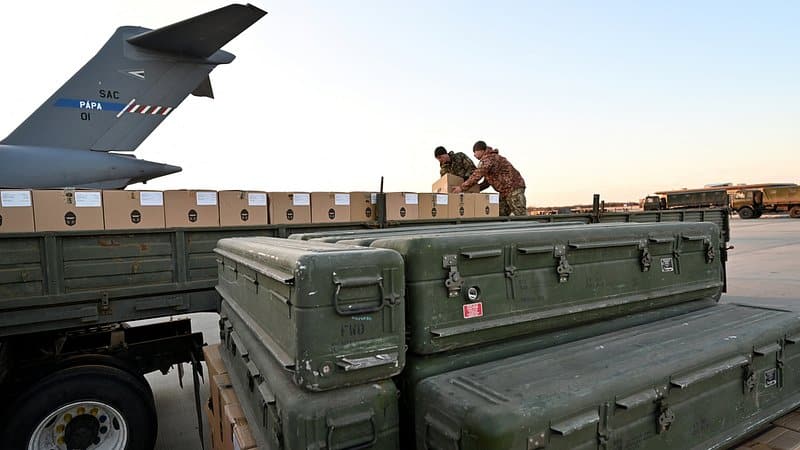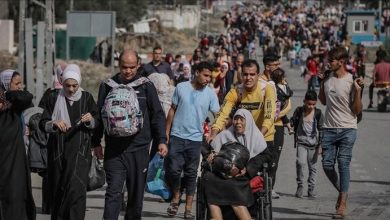Germany to Putin: ‘untie the noose’ around Ukraine

Germany’s president on Sunday said “responsibility” for the risk of “war” in Ukraine lay with Russia, bringing greater clarity to Berlin’s position on the crisis which has been criticised as too lenient towards Moscow.
Speaking after his re-election for a second five year term, Frank-Walter Steinmeier called directly on Russian President Vladimir Putin to “untie the noose around Ukraine’s neck”.
On the eve of Chancellor Olaf Scholz’s trip to Kyiv and Moscow, the continent was confronted with the “danger of a military conflict, of war in eastern Europe — and Russia carries the responsibility for that,” Social Democrat Steinmeier said.
“Peace cannot be taken for granted. It must be worked on in dialogue and when necessary, with clear words, deterrence and determination,” the former foreign minister said.
“In the event of a military aggression against Ukraine that threatens its territorial integrity and sovereignty, that will lead to tough sanctions that we have carefully prepared and which we can immediately put into force, together with our allies in NATO and Europe,” Scholz said.
Scholz travels to Kyiv on Monday, where he will meet with the Ukranian President Volodymyr Zelensky. He will then move on to Moscow on Tuesday for talks with Russian President Putin, in the latest diplomatic push to avoid a conflict.
Scholz’s trip comes after weeks of rising tensions that have seen Russia nearly surround its western neighbour with more than 100,000 troops.
The crisis entered a new phase after Washington warned that an all-out invasion could begin “any day”.
‘Critical moment’
Tensions between Russia and Ukraine have reached a “critical” point, a German government source said earlier on Sunday.
“Our concerns have grown… we asses the situation as very critical, very dangerous”, the source told journalists in Berlin, including AFP.
While Germany continued to rule out delivering “lethal” arms to Ukraine, it was considering extending more financial support to Ukraine, the source indicated.
Berlin, which has already delivered 2 billion euros ($2.3 billion) in aid to Ukraine since the annexation of Crimea by Russia in 2014, was examining “whether there are still bilateral possibilities to contribute to economic support”, the source said.
Germany has been criticised in recent weeks by Kyiv and some European allies for not taking a hard enough line against Russia during the crisis.
Earlier on Sunday, Ukraine’s ambassador to Berlin used an interview with public radio to call for Germany to “remove the Russian glasses from its Ukraine policy, because they are blurring its vision”.
Diplomatic credentials
The presidential election, normally held in the Bundestag building, took place at Paul Loebe Haus, a post-modern office complex opposite the Chancellery in central Berlin, in order to meet pandemic distancing requirements.
Steinmeier, 66, who has gained a reputation as a tireless defender of democratic values during his first term in office, secured an overwhelming majority in the first round of voting among delegates to the Federal Convention.
In all, the incumbent received 1,045 votes from the 1,472 delegates in the one-off assembly, made up of MPs and an equal number of state delegates.
Steinmeier served twice as foreign minister in Merkel’s cabinet, stepping back from his duties as Germany’s top diplomat to take on the ceremonial role as head of state in 2017.
The president’s role in Germany is mostly symbolic, with the office holder acting as a constitutional counterpart to the chancellor.





